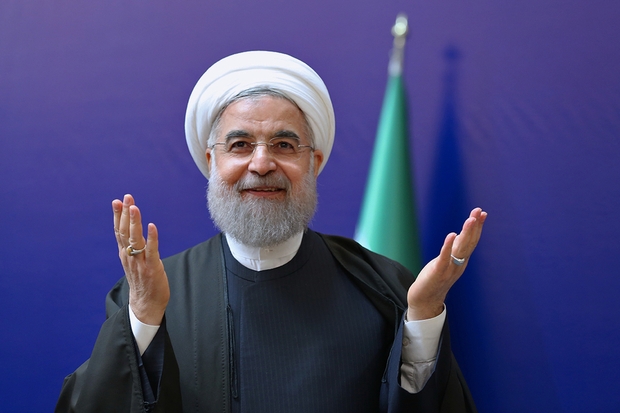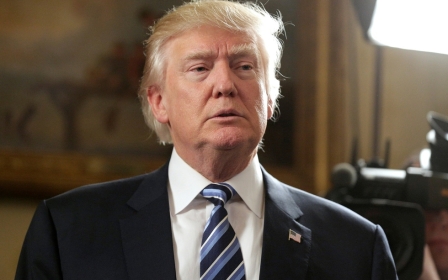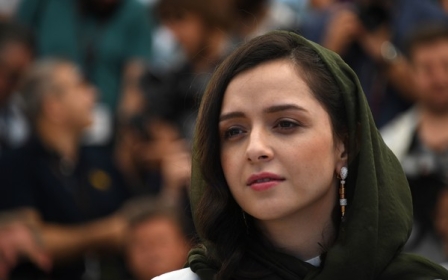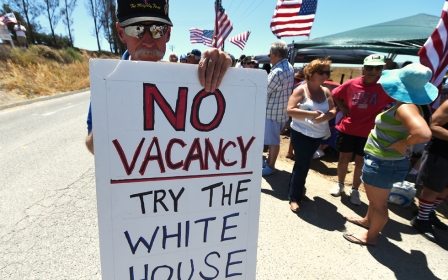Iran says it will respond in kind to Trump's 'insulting' ban

Iran will ban Americans from entering the country in response to President Donald Trump's "insulting" order restricting arrivals from Iran and six other Muslim states, the foreign ministry said on Saturday.
"The Islamic Republic of Iran... has decided to respond in kind after the insulting decision of the United States concerning Iranian nationals", the ministry said in a statement carried by state television.
Trump on Friday signed a sweeping executive order to suspend refugee arrivals and impose tough controls on travellers from Iran, Iraq, Libya, Somalia, Sudan, Syria and Yemen.
Iran's foreign ministry called the decision "illegal, illogical and contrary to international rules".
It said its own ban on US nationals would continue until the American measure was lifted.
It said it had ordered Iranian diplomatic missions to help Iranians who had been "prevented from returning to their homes and places of work and study" in the United States.
Travel agents in Tehran said that foreign airlines had begun barring Iranians from US-bound flights.
Iranian President Hassan Rouhani criticised Trump on Saturday, saying now was "not the time to build walls between nations".
"They have forgotten that the Berlin Wall collapsed many years ago. Even if there are walls between nations, they must be removed," Rouhani said at a tourism convention in Tehran.
His remarks came after Trump ordered the construction of a wall along the US-Mexico border and imposed tough new controls on travellers from seven Muslim countries.
Rouhani did not comment directly on the visa ban but said Iran had "opened its doors" to foreign tourists since the signing of a nuclear agreement with world powers in 2015.
With more than a million Iranians living in the United States, many families are deeply concerned about the implications of Trump's visa ban.
On Thursday, one of Iran's most popular actresses said she would boycott next month's Academy Awards in protest at the ban.
"Trump's visa ban for Iranians is racist. Whether this will include a cultural event or not, I won't attend the #AcademyAwards 2017," tweeted Taraneh Alidoosti, who stars in the Oscar-nominated The Salesman.
No visas will be issued for migrants or visitors from the seven countries for at least 90 days, a restriction which can be extended if the countries in question do not provide extensive information on individuals seeking to enter the United States.
Quizzed on the street, many Iranians told AFP they were baffled by the move.
"Americans themselves are mostly immigrants. To pick out a few countries and call them terrorist is not logical," said Mohsen Najari, a 33-year-old resident of the Iranian capital.
Tehran and Washington have not had diplomatic ties since students stormed the US embassy in 1980 following an Islamic revolution that toppled the US-backed shah.
"It's got nothing to do with terrorism. Iran and the US just don't have good ties. The US has good relations with Saudi Arabia so it doesn't matter how many terrorists come from Saudi Arabia," said Sima, a 27-year-old.
The National Iranian American Council on Tuesday described Trump's ban as "shameful and discriminatory".
In a statement posted on its site, the organisation said: "We will not be silent and will use every resource at our disposal to fight these shameful actions and protect the values and people who make America great.”
The organisation also said: “Even if this were the right approach, it is notable that the list doesn’t include Saudi Arabia and would have done nothing to prevent 9/11 or the other terrorist attacks committed by radical Wahhabi jihadists in the US. But it does include Iran – from which no national has committed a terrorist act in America."
New MEE newsletter: Jerusalem Dispatch
Sign up to get the latest insights and analysis on Israel-Palestine, alongside Turkey Unpacked and other MEE newsletters
Middle East Eye delivers independent and unrivalled coverage and analysis of the Middle East, North Africa and beyond. To learn more about republishing this content and the associated fees, please fill out this form. More about MEE can be found here.




